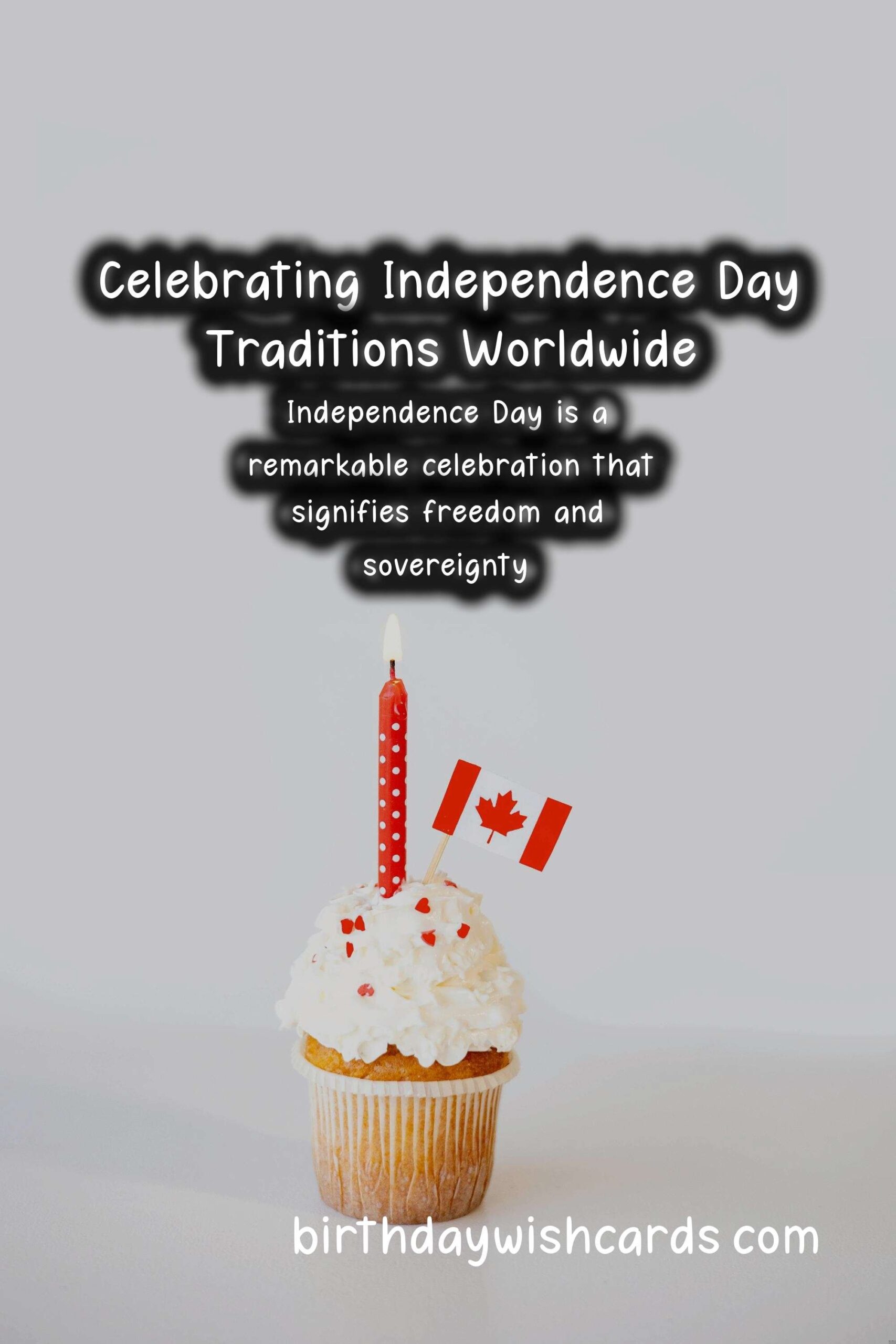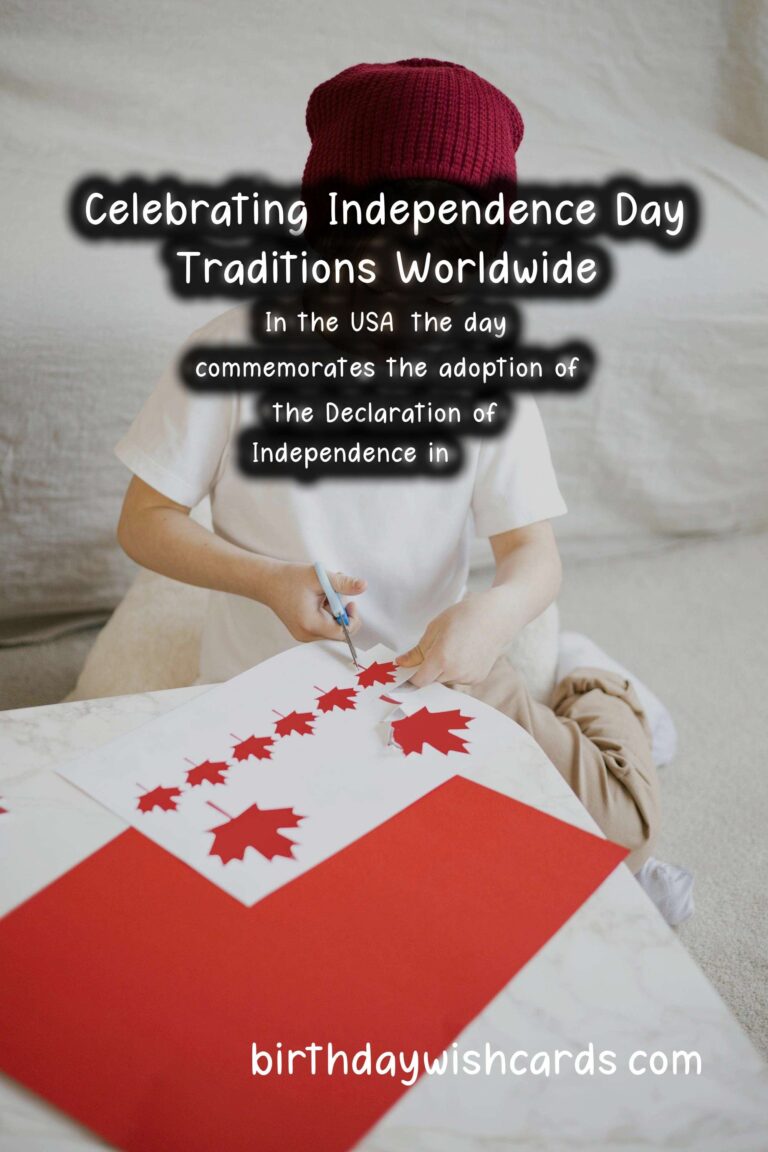
Independence Day is a remarkable celebration that signifies freedom and sovereignty. It is observed in numerous countries worldwide, each with its own rich and unique traditions.
1. United States of America
The most recognized celebration of Independence Day occurs on July 4th. In the USA, the day commemorates the adoption of the Declaration of Independence in 1776.
Traditionally, festivities include spectacular fireworks displays, parades, barbecues, and family gatherings. Cities host events such as the famous Macy’s 4th of July Fireworks in New York City, drawing millions of spectators.
2. India
In India, Independence Day is celebrated on August 15th, marking the end of British rule in 1947. The day begins with the Prime Minister hoisting the national flag at Red Fort, followed by a speech addressing the nation.
People participate in cultural events, parades, and patriotic song and dance performances. Schools and colleges observe this day with flag hoisting and various competitions aimed at promoting patriotic spirit.
3. Mexico
Mexico’s Independence Day is celebrated on September 16th, commemorating the start of the War of Independence from Spain in 1810. The day begins with the ‘Grito de Dolores’ where the president rings the bell and evokes a call for independence.
Celebrations include vibrant parades, traditional music, delicious food, and fireworks at night. Streets are filled with people waving the Mexican flag and displaying the colors of the national emblem.
4. France
France celebrates Bastille Day on July 14th, marking the storming of the Bastille prison in 1789. It is a significant symbol of the French Revolution and marks the birth of the French Republic.
Parades, fireworks, and parties dominate the day’s agenda. The most famous event is the military parade on the Champs-Élysées in Paris, showcasing France’s military might and unity.
5. Brazil
Brazil celebrates its Independence Day on September 7th, commemorating its declaration of independence from Portugal in 1822. The day is marked by patriotic parades that take place across the country.
In the capital, Brasília, a grand military parade takes place, showcasing Brazil’s cultural diversity through music, dance, and art. Colorful festivities fill the streets, vividly portraying national pride.
6. South Africa
South Africa observes Freedom Day on April 27th, marking the first post-apartheid elections held in 1994. The day highlights the struggle for independence and democracy.
Celebrations involve cultural events, concerts, and public gatherings to reflect on the nation’s progress. People often wear traditional attire, showcasing the country’s rich cultural heritage.
7. Kenya
Kenya celebrates Mashujaa Day or Heroes’ Day on October 20th, honoring those who contributed towards the country’s independence. This day serves to recognize the sacrifices made by freedom fighters.
Festivities include parades, cultural performances, and historical speeches, commemorating Kenyan heritage and unity.
8. Australia
While Australia Day, celebrated on January 26th, is not strictly an independence day, it marks the arrival of the First Fleet in 1788. The day is marked by various events that celebrate Australian culture.
Festivities include fireworks, concerts, and citizenship ceremonies for new Australians, highlighting national pride and recognition of indigenous cultures.
9. Philippines
The Philippines celebrates Independence Day on June 12th, commemorating its declaration from Spanish colonial rule in 1898. The day is filled with various activities highlighting Filipino culture.
Public celebrations involve flag-raising ceremonies, parades, and cultural shows, expressing national pride through music and dance.
10. Greece
Greece celebrates Independence Day on March 25th, marking the start of the war for independence from Ottoman rule in 1821. The day symbolizes national pride and heritage.
Celebrations feature military parades, cultural displays, and traditional meals. Schools often hold events emphasizing Greek history and culture.
Conclusion
Independence Day celebrations around the world reflect the rich cultural heritage and national pride of each country. While the symbols and traditions may vary, the essence of freedom and unity resonates universally.
Independence Day is a remarkable celebration that signifies freedom and sovereignty. In the USA, the day commemorates the adoption of the Declaration of Independence in 1776.

